Course: The European Union. EU Institutions
Course “Introduction to the EU and their Institutions” (Online,
3 ECTS,  )
)
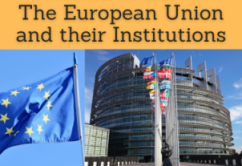
The main objective of the Professional Course “Introduction to the EU and their Institutions” taught by EENI Global Business School is to understand the complex functioning of the EU: The largest market in the world.
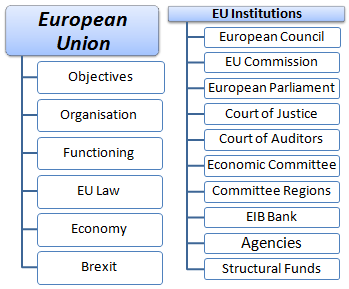
Given the complexity of the European Union, two modules compose this course:
- Introduction to the EU
- EU Institutions
 Enrol / Request for Information
Enrol / Request for Information

- Credits: 3

- Duration: 3 weeks It is recommended to dedicate about twelve hours of study per week following a flexible schedule. It is possible to reduce the duration dedicating more hours a week
- Tuition Fees: EUR 72
- Open Online Enrollment
- Download the syllabus of the Course (PDF)
Aimed at all those who need to understand the complex functioning of the EU.
Languages: 

This course contains exercises that are evaluated, which the student must work out and pass to obtain the Diploma of the Professional Course: “Introduction to the European Union and their Institutions” issued by EENI Global Business School.
Students who have taken this course can validate and register for a Master or Doctorate at EENI.
This course belongs to the following Higher Education Programs taught by EENI:
Masters: International Business, Foreign Trade.
Doctorate: European Business, World Trade.
Masters for the Students from the  EU.
EU.
Module one- Introduction to the European Union: The largest market in the world
- Objectives of the EU
- Introduction to the budget and organization of the EU
- The EU in figures
- European Union's Law
- The EU Treaties: Rome, Maastricht, Lisbon.
- Regulations, Directives and other legislative acts of the EU
- Functioning of the EU
- Introduction to the economy of the EU
- BREXIT
- Amancio Ortega, the third richest man in the world
- Working for the EU
- The EU as a member of the European Economic Area of the Western Civilization (PDF)
The specific aims of the module one “Introduction to the European Union” are the following:
- To analyze the basic principles and functioning of the EU
- To understand the basic concepts of the Community Law
- To assess the impact and causes of the BREXIT
- To understand the importance of the EU in the global scenario
- To analyze the structural and investment funds of the EU
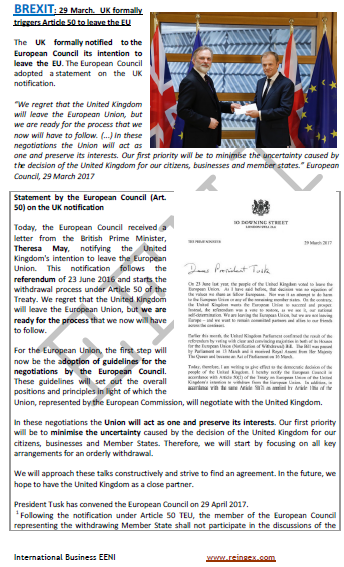
Module two- Institutions of the EU.
- European Council: the political arm of the EU
- Council of the EU
- Presidency of the Council of the EU
- European Commission: the executing body of the EU
- European Parliament: the legislative body
- Court of Justice of the EU: the guarantor of the EU legality
- European Court of Auditors (ECA): the financial supervisor of the EU
- European Economic and Social Committee (EESC): the consultative body
- European Committee of the Regions (CoR): the assembly of representatives
- EIB (EIB): the financial institution of the EU
- Decentralized EU Agencies
- European Central Bank
The specific aims of the second module of the “Course in Institutions of the EU” are to learn about:
- The role of each of the European Institutions
- The role of the European Council as the political arm of the EU
- The EU's political priorities
- The Strategic Agenda for the Union in times of change
- The role of the European Commission as the executing institution of the EU
- Objectives, priorities and structure of the European Commission
- Implications of the White Paper on the future of Europe
- The key role of the European Parliament
- Parliament's legislative capacity and legislative procedures
- Role of the Court of Justice as the guarantor of the legality in the EU
- Reports, regulations and jurisprudence of the Court of Justice
- The role of the European Court of Auditors as the EU's financial supervisor
- The role of the European Economic and Social Committee (EESC) as the advisory body to the EU
- Europe 2020 Multi-Year Program
- The role of the Committee of the Regions of the EU and his relationship with the EU policies and legislation
- Areas of cooperation, objectives and strategy of the European Investment Bank
- Specialized agencies of the EU
- The role of the European Central Bank in the financial and monetary stability of the EU
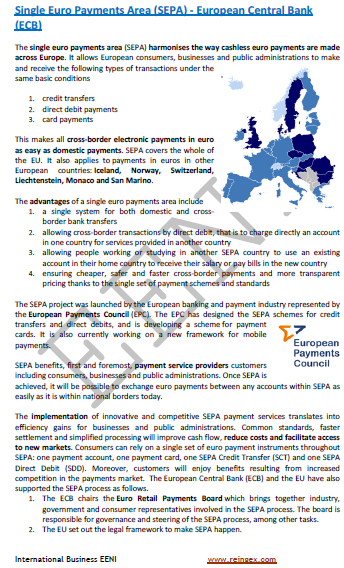
Note: the EU Foreign Policy is analyzed in the course “International economic relations of the EU.”
Knowledge Area: Europe.

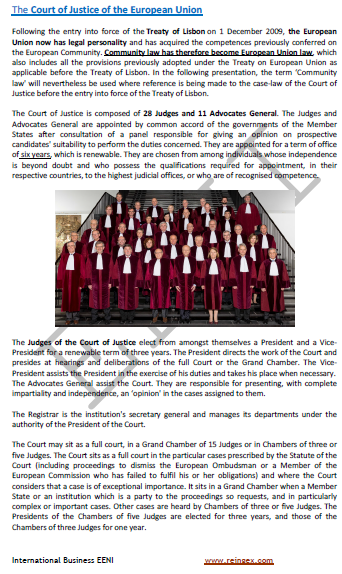
(c) EENI Global Business School (1995-2024)
We do not use cookies
Top of this page






